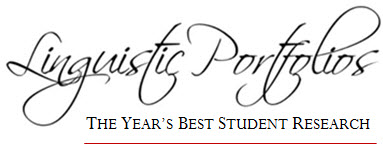
Abstract
Tone is a conundrum for linguists attempting to reduce African languages to writing. Anecdotal, empirical, and experimental data indicate that not marking tone at all leads to reading difficulties. The converse is also true, namely marking tone exhaustively reduces fluency, leads to false starts, and repairs. This article proposes an elegant but simple solution to get out of this catch twenty-two situation. First, a historical overview of various tone marking schemes is discussed. Second, the concept of Tone Optimality Model (TOM) is introduced and exemplified. The proposed model succeeds in reducing tonal density in texts without affecting readability. The main advantage of TOM over other tone marking schemes is that it draws insights from well-established phonological theories, from the Interactive Reading Model, and from research on tone universals. As a result, tone can be written minimally with maximum benefits for readers.
L’orthographe du ton représente un véritable casse-tête chinois pour les linguistes travaillant sur les langues africaines. Les études expérimentales, les observations empiriques, et les ouïe-dires confirment que ne pas indiquer le ton conduit à toutes sortes de difficultés de lecture mais en marquer de trop affecte négativement la fluidité de la lecture. Le présent article propose une solution simple et élégante à ce dilemme. La première partie de l’article est consacrée à un rappel historique des différentes propositions faites pour le marquage des tons. La seconde partie introduit le concept du Modèle Optimal des Tons (MOT). L’avantage de ce modèle sur tous les autres c’est qu’il permet de réduire la densité tonale sans affecter la fluidité de la lecture négativement. Ce modèle tire sa source de plusieurs théories phonologiques déjà établies et bénéficie aussi des apports de la théorie de la lecture et des recherches sur les universaux de tons.
Creative Commons License

This work is licensed under a Creative Commons Attribution-NonCommercial-No Derivative Works 4.0 International License.
Recommended Citation
Koffi, Ettien N. Dr.
(2014)
"Towards an Optimal Representation of Tones in the Orthographies of African Languages,"
Linguistic Portfolios: Vol. 3, Article 12.
Available at:
https://repository.stcloudstate.edu/stcloud_ling/vol3/iss1/12



Author Bio
Ettien Koffi is a professor of Linguistics. He teaches the linguistics courses in the TESOL/Applied Linguistics M.A. program in the English Department at Saint Cloud State University, MN. He has written three linguistic books: Language Society in Biblical Times (1996), Applied English Syntax (2010), and Paradigm Shift in Language Planning and Policy: Game Theoretic Solutions (2012). He is the author of many peerreviewed articles on various topics in linguistics. His primary area of specialization is at the interface between acoustic phonetics and phonology. He has extensive experience in emergent orthographies and in the acoustic phonetic and phonological description of dialect variation. He can be reached via email at: enkoffi@stcloudstate.edu.